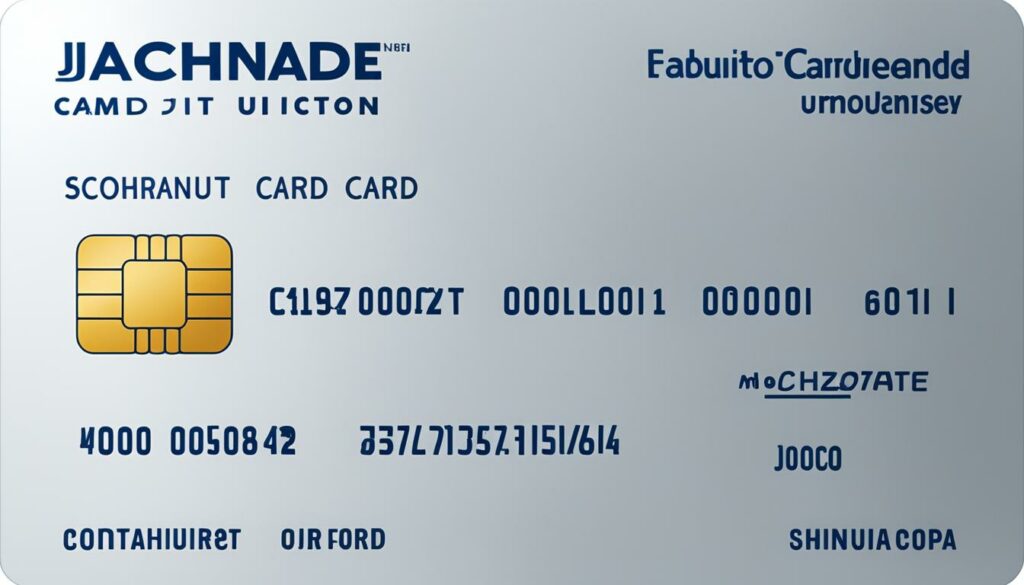Building Credit as a Teen: Tips and Strategies
Establishing credit as a teenager is a crucial step towards financial independence and future financial milestones. By starting to build credit at a young age, teens can set themselves up for success in achieving their financial goals. In this article, we will explore various strategies that can help teens establish and build credit responsibly.
Key Takeaways:
- Building credit as a teen is important for future financial milestones.
- Teach your teen about basic financial concepts to set them up for financial success.
- Consider adding your teen as an authorized user on your credit card to help them learn about credit and build credit history.
- Opening a checking or savings account can demonstrate financial responsibility and contribute positively to their credit history.
- Encourage your teen to get a part-time job to gain financial independence and develop good money management habits.
Building credit at a young age can be achieved through a combination of educational efforts, responsible credit card use, and good financial practices. By implementing these strategies, teens can start establishing a solid credit history that will benefit them throughout their lives. Let’s dive deeper into these strategies in the following sections.
Teach Your Teen about Basic Financial Concepts

Before your teen becomes financially independent, it’s essential to educate them about basic financial concepts. By teaching them about budgeting, saving, and the importance of responsible credit use, you can set them on the path to financial success. The knowledge they gain during their teenage years will provide a strong foundation for their future financial decisions.
One of the key financial concepts to teach your teen is budgeting. Help them understand the importance of creating a budget to manage their income and expenses. Teach them how to allocate funds for different categories, such as savings, daily expenses, and discretionary spending. By instilling good budgeting habits early on, you can help them develop a responsible approach to money management.
Saving is another crucial financial habit for teenagers to cultivate. Encourage your teen to set aside a portion of their earnings for future goals or unexpected expenses. Teach them the power of compounding by explaining the benefits of long-term saving. This can be an excellent opportunity to introduce them to concepts like interest, investments, and the different types of savings accounts.
Understanding banking and credit is also essential for teens as they start building their financial foundation. Teach them about different banking products and services, such as checking and savings accounts. Help them grasp the concept of interest rates and fees associated with different types of accounts. This knowledge will empower them to make informed decisions when choosing financial institutions.
When it comes to credit, teach your teen the importance of responsible credit use. Explain how credit scores are calculated, what factors influence them, and how they impact future borrowing opportunities. Emphasize the significance of paying bills on time and keeping credit card balances low. Encourage them to review their credit reports regularly to identify any errors or discrepancies.
“Financial education is as important as any other life skill we teach young people. It sets them up for a lifetime of financial success and empowers them to make informed decisions.”
By teaching your teen about basic financial concepts, you equip them with the knowledge and skills they need to make sound financial decisions. It’s never too early to start instilling good money habits and preparing them for a financially responsible future.
Consider Authorized Users on Your Credit Card

One effective strategy to help your teen build credit is by adding them as an authorized user on your credit card. This allows them to learn firsthand how credit works and how to use it responsibly.
By granting your teen authorized user status, they can benefit from your credit history and establish their own credit as well. This arrangement can be a valuable learning experience, teaching them about the importance of responsible credit use and financial management.
To ensure a positive experience, it’s crucial to set clear guidelines for your teen’s card use. Emphasize the importance of paying off the balance in full each month and meeting payment due dates. Encourage responsible spending habits and explain the potential consequences of overspending or carrying a high credit card balance.
“Adding your teen as an authorized user on your credit card allows them to learn valuable lessons about credit and money management, which will benefit them in the long run.”
By monitoring their card activity, discussing monthly statements, and reviewing the impact on credit scores, you can guide your teen towards responsible credit card use. This will help them develop healthy financial habits and build a strong credit history.
Remember, adding your teen as an authorized user is a significant responsibility. It’s crucial to ensure they understand and respect the rules and boundaries you establish for card usage. This way, they can use credit cards responsibly and build a solid foundation for their financial future as authorized users.
The Benefits of Adding an Authorized User
When you add your teen as an authorized user, they can:
- Start building their credit history at a young age
- Learn about credit management and responsible spending
- Benefit from your credit history and potentially get a head start on their own credit journey
Adding your teen as an authorized user is an effective way to help them establish credit and develop important financial skills. It’s a valuable step towards their long-term financial success.
Open a Checking or Savings Account
Opening a checking or savings account for your teen is an important step in their financial journey. By having their own bank account, they can learn valuable lessons about money management and develop responsible financial habits. It also provides an opportunity for them to establish a positive credit history, which can be beneficial in the long run.
When choosing a teen checking account or savings account, look for options that cater specifically to teenagers. These accounts often come with features that promote financial education and responsibility. For example, some accounts offer budgeting tools and digital banking platforms that make it easy for teens to track their expenses and savings.
Not only does having a bank account teach your teen about financial management, but it also demonstrates to financial institutions that they are capable of handling money responsibly. This can be advantageous when they eventually apply for credit cards, loans, or other financial products.
If the account comes with a debit card, it provides an opportunity for your teen to gain experience using plastic for transactions. Help them understand the importance of keeping track of their spending, monitoring their balance, and making responsible purchasing decisions.
“Opening a checking or savings account for your teen is a crucial step in their financial journey. It not only teaches them about money management but also helps them establish a positive credit history.”
Encourage your teen to take an active role in managing their bank account. Teach them how to reconcile their statements, keep receipts, and monitor their transactions. This hands-on experience will foster a sense of responsibility and empower them to make informed financial decisions.
The Benefits of a Teen Checking or Savings Account:
- Teaches money management skills
- Encourages responsible financial habits
- Establishes a positive credit history
- Provides experience with debit card usage
- Offers access to budgeting tools and digital banking features
By opening a checking or savings account for your teen, you are equipping them with the necessary tools and knowledge to navigate the world of personal finance. This foundation of financial literacy will serve them well as they continue to grow and make important financial decisions in the future.
| Pros | Cons |
|---|---|
| Teaches financial responsibility | May require a minimum balance |
| Helps establish a credit history | May have limited features and benefits compared to adult accounts |
| Encourages saving habits | May have age restrictions for certain transactions |
| Provides a secure place for their money | May come with fees for certain services |
Get a Part-Time Job

Encouraging your teen to get a part-time job can have numerous benefits beyond just earning money. Working part-time teaches essential skills such as work ethic, time management, and money management. It also provides an opportunity for them to apply what they’ve learned about financial responsibility in a real-world setting.
Having a steady source of income allows your teen to take on additional financial responsibilities and gain valuable experience in handling their finances. They can use their earnings to make credit card payments if they have a secure or student credit card. This not only helps them build credit but also instills a sense of financial independence.
Moreover, a part-time job encourages your teen to develop saving habits. By earning their own money, they can learn the value of saving for both short-term goals and future aspirations. Whether it’s for their college education, a car, or even their first apartment, the act of saving teaches discipline and delayed gratification.
“A part-time job offers more than just a paycheck. It’s an opportunity for teens to gain hands-on experience, develop a strong work ethic, and learn valuable financial skills.”
– Financial Advisor Sarah Johnson
“Working part-time during the teenage years can have long-lasting benefits. It not only teaches important life skills but also sets the foundation for a successful financial future.”
– Career Counselor Michael Davis
Not only does a part-time job provide practical benefits, but it can also help your teen explore their interests and passions. They may discover a potential career path or develop essential skills that will be valuable in their future endeavors.
Encourage your teen to research different part-time job opportunities in their local community. Whether it’s working as a barista, a retail sales associate, a lifeguard, or a tutor, they can discover meaningful experiences while building valuable skills.
| Benefits of Part-Time Jobs for Teens | Skills Developed |
|---|---|
| Financial independence | Work ethic |
| Money management | Time management |
| Saving habits | Communication skills |
| Exploration of interests | Customer service |
Pay Bills on Time

Teaching your older teenager the importance of paying bills on time is a crucial lesson in financial responsibility. Not only does it help them build their credit, but it also enables them to avoid expensive late payment fees. By instilling this habit early on, you can set your teen up for long-term financial success.
Here are a few steps you can take to teach your teen about paying bills on time:
- Manage due dates: Help your teen understand the due dates for their bills. Create a calendar or set reminders on their phone to ensure they don’t miss any payments.
- Set reminders: Encourage your teen to set reminders for bill payments. This can be done through smartphone apps, online calendars, or even sticky notes placed in prominent locations.
- Make timely payments: Show your teen how to make timely payments for bills in their name, such as phone bills or subscription services. Guide them through the process of setting up automatic payments or making manual payments online.
“Paying bills on time not only contributes to your credit history, but it also demonstrates reliability and responsible financial management.”
By stressing the importance of bill payment responsibility, you are equipping your teen with essential life skills that will serve them well into adulthood.
Remember, consistent and timely bill payments not only have a positive impact on their credit history but also help them avoid unnecessary financial penalties. By teaching your teen about the importance of paying bills on time, you are empowering them to navigate their financial future responsibly.
Obtain a Secured Credit Card
A secured credit card is an excellent option for your teen to start building credit. With this type of card, you can make an initial deposit together, which then becomes their credit limit. This provides a sense of security for both you and your teen, as they can only spend what they have deposited.
Teach your teen the importance of using the secured credit card responsibly. Encourage them to make regular payments and keep their credit utilization low, ideally below 30% of their available credit limit. This showcases responsible credit card use and helps build a positive credit history over time.
Remember to monitor your teen’s credit activity and review their credit report regularly. This ensures the accuracy of their credit information and allows you to address any discrepancies promptly. It’s crucial for your teen to develop good credit habits and understand the impact it has on their financial future.
| Benefits of a Secured Credit Card for Teens | Responsibilities of Using a Secured Credit Card |
|---|---|
|
|
By guiding your teen through the process of using a secured credit card, you can help them establish a strong foundation for their financial future. It’s essential to emphasize responsible credit card use and the importance of building a positive credit history from an early age.
Explore Student Credit Cards
When it comes to building credit in college, student credit cards can be a valuable tool. Designed specifically for college students, these cards offer a range of benefits that can help young adults establish and strengthen their credit history. By using student credit cards responsibly, college students can pave the way for a solid financial foundation.
Student credit cards often come with lower credit limits, which can help students avoid excessive debt and promote responsible spending habits. In addition, some issuers offer rewards programs that incentivize good financial behavior, such as maintaining good grades. These rewards can provide extra motivation and reinforce positive credit habits.
Before applying for a student credit card, it’s important for college students to understand how credit works and the responsibilities of using a credit card. They should learn about interest rates, credit utilization, and the impact of making on-time payments. By developing a thorough understanding of credit card fundamentals, students can make informed decisions and avoid potential pitfalls.
It’s also worth comparing different student credit card options to find the best fit. Factors to consider include annual fees, interest rates, rewards programs, and introductory offers. Some cards may offer benefits like cashback on specific purchases or incentives for responsible credit use. By comparing the features and benefits of various student credit cards, college students can choose the card that aligns with their needs and goals.
Remember, a student credit card is a tool for building credit, not an opportunity for unlimited spending. It’s crucial to use a credit card responsibly by making payments on time and keeping balances low. By doing so, college students can establish a positive credit history, which can open doors to future financial opportunities.
| Benefits of Student Credit Cards | Considerations When Choosing a Card |
|---|---|
|
|
Note: The benefits and considerations mentioned above are general in nature. Students should carefully review the terms and conditions of specific credit card offers before applying.
By exploring student credit card options and using them responsibly, college students can build a strong credit foundation that will serve them well in the future.
Consider Credit Builder Loans
Are you looking for a reliable way to establish your credit history? Consider credit builder loans, a specific type of loan designed to help individuals build credit from scratch. With credit builder loans, you can start building your credit while also saving money.
Here’s how credit builder loans work:
- When you take out a credit builder loan, the borrowed funds are held in a savings account or certificate of deposit as collateral. This means that you can’t access the funds until the loan is completely paid off.
- You make monthly payments towards the loan, which demonstrates your ability to manage debt responsibly and make consistent payments.
- The payment history for your credit builder loan is reported to credit bureaus, allowing you to establish a positive credit history over time.
Benefits of Credit Builder Loans
Credit builder loans offer several benefits for individuals who are starting on their credit-building journey:
- Establish Credit History: By making timely payments on your credit builder loan, you can establish a solid credit history, which is crucial for future financial endeavors.
- Save Money: With credit builder loans, you’re not only building credit but also saving money. The funds used as collateral will be available to you once you’ve paid off the loan.
- Build Credit Without Risk: Since credit builder loans are secured by the funds you provide as collateral, there is no risk to the lender. This makes it easier to obtain a credit builder loan, even if you have no credit history or a low credit score.
By considering a credit builder loan, you can take a significant step towards building your credit and establishing a positive credit history. Start your journey to financial stability today!
| Pros | Cons |
|---|---|
| Helps establish credit history | Requires collateral |
| Allows simultaneous saving and credit building | Access to funds is restricted |
| No credit history or minimum credit score requirement | May have higher interest rates |
Teach Your Teen How to Monitor Their Credit History
Once your teen has started building credit, it’s crucial to teach them how to monitor their credit history. By regularly checking their credit report, they can ensure the accuracy of the information and detect any errors or fraudulent activity that may impact their creditworthiness. This step is essential for maintaining a healthy credit profile and ensuring future financial success.
Checking Credit Reports: A Key Step
Checking credit reports allows teens to review the details of their credit history, including credit accounts, payment history, and outstanding debts. It provides a comprehensive overview of their financial activity and helps them identify any discrepancies or inaccuracies that need to be addressed. By proactively monitoring their credit reports, teens can take control of their financial future and make informed decisions.
Encourage your teen to obtain a copy of their credit report from each of the three major credit bureaus – Equifax, Experian, and TransUnion. They can request a free copy of their credit report annually or use a reputable credit monitoring service to stay informed about any changes or updates to their credit profile.
| Why Credit Monitoring is Important | How it Benefits Your Teen |
|---|---|
| Identity theft protection: | Early detection of suspicious activity helps prevent potential identity theft and minimizes its impact. |
| Tracking credit behavior: | Teens can analyze their credit usage, identify areas for improvement, and make adjustments as necessary. |
| Building credit responsibly: | Closely monitoring credit reports ensures responsible credit behavior and helps teens maintain a positive credit history. |
| Dispute errors or inaccuracies: | If your teen finds any errors or inaccuracies on their credit report, they can take immediate action to dispute and rectify the issues. |
Introduce Credit Monitoring Tools
Teaching your teen how to use credit monitoring tools can empower them to stay on top of their credit health. These tools provide real-time updates and alerts about changes to their credit profile, allowing them to respond promptly to any potential issues. Encourage them to explore reputable credit monitoring services that offer comprehensive credit reporting, identity theft protection, and personalized insights into their credit behavior.
Additionally, guide them on how to interpret the information on their credit report. Help them understand the different sections, such as personal information, credit accounts, and payment history, and explain how each component impacts their overall creditworthiness. This knowledge will enable them to take proactive steps to improve their credit standing.
Remember, credit monitoring is an ongoing process. Regular credit check-ups should be a part of your teen’s financial routine, allowing them to stay informed, protect their credit, and make informed decisions about their financial future.
Equipping your teen with the knowledge and tools to monitor their credit history will not only safeguard their financial well-being but also positively impact their long-term credit success. Teaching them the importance of credit monitoring ensures that they remain vigilant, actively maintain their credit health, and make informed financial decisions.
Conclusion
Teaching your teen about building credit from a young age is essential for their long-term financial success. By implementing these credit-building strategies for teens and encouraging financial responsibility, you can help them establish a solid credit history that will benefit them in the future.
Throughout their teenage years, it is crucial to emphasize responsible credit use and instill good financial management habits. By educating them about basic financial concepts, adding them as an authorized user on your credit card, opening a checking or savings account, encouraging part-time employment, and teaching them to pay bills on time, you provide them with valuable tools for long-term credit success.
Further options to consider as they mature include obtaining a secured credit card or exploring student credit cards. These options can help them continue building credit while learning responsible credit usage. Additionally, credit builder loans offer an opportunity for your teen to establish credit history while saving money, further solidifying their financial foundation.
Remember, as your teen starts building credit, it is crucial to teach them how to monitor their credit history. Regularly checking their credit report and utilizing credit monitoring tools will enable them to identify and rectify any errors and stay on track for a successful credit journey. With these credit-building strategies and a focus on long-term financial responsibility, your teen will be well-prepared to make informed financial decisions in the future.
FAQ
How can I teach my teen about basic financial concepts?
Start by teaching them about budgeting, saving, and responsible credit use. Help them understand how banking, payments, and credit work.
How can adding my teen as an authorized user on my credit card help them build credit?
Adding your teen as an authorized user can help them learn about credit and build their credit history. Set clear guidelines and teach them about payment due dates and responsible card use.
Why should my teen open a checking or savings account?
Opening a checking or savings account allows your teen to learn money management skills and demonstrate their ability to handle money responsibly, which can positively impact their credit history.
How can a part-time job help my teen build credit?
Getting a part-time job helps your teen understand the value of money, develop a work ethic, and provides a stable source of income that can be used for credit card payments and developing saving habits.
Why is it important for my teen to pay bills on time?
Paying bills on time helps build their credit and avoids expensive late payment fees. Teach them how to manage due dates, set reminders, and make timely payments.
How can a secured credit card help my teen build credit?
A secured credit card requires an initial deposit, which becomes the credit limit. Teach your teen to use the card responsibly, make regular payments, and keep the credit utilization low to build a positive credit history.
What are student credit cards, and how can they help my teen build credit?
Student credit cards are designed for college students and can help build credit when used responsibly. These cards often have lower credit limits and may offer rewards for good behaviors such as maintaining good grades.
How can credit builder loans help my teen establish credit?
Credit builder loans require collateral, and monthly payments are made until the loan is paid off. The payment history is reported to credit bureaus, helping your teen establish a credit history while also saving money.
How can I teach my teen to monitor their credit history?
Show them how to check their credit report for accuracy, introduce them to credit monitoring tools, and encourage regular credit check-ups to identify and dispute any errors.






